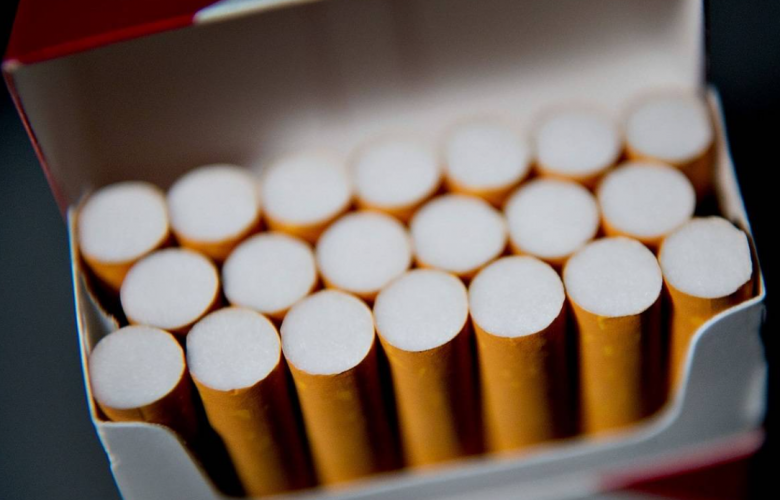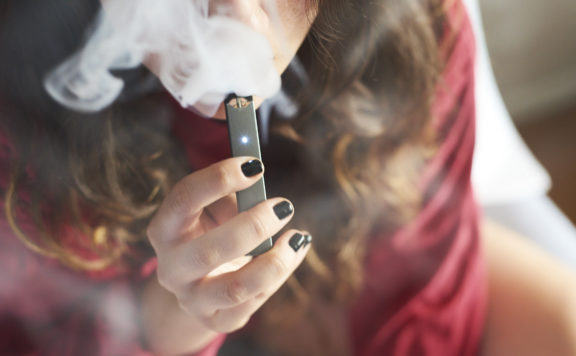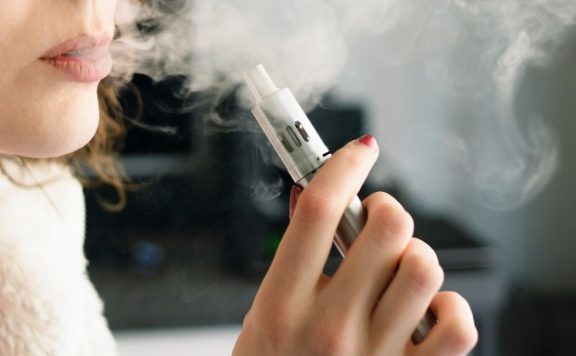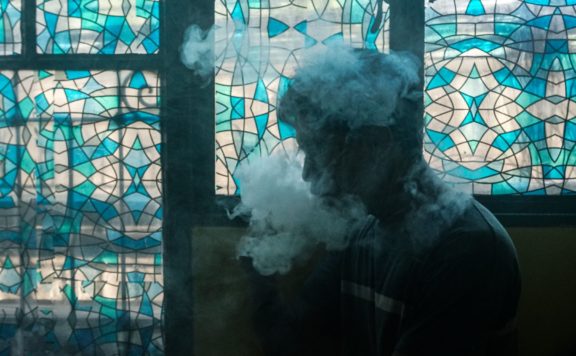The question of whether anyone born after January 1, 2007, should be prohibited from ever purchasing tobacco or vaping lawmakers will likely decide products next week.
(When the new Parliament session starts on Monday (Oct 3), the Control of Tobacco Product and Smoking Bill 2022 would be one of the first proposed legislation to be presented, according to Member of Parliament (MP) for Sibuti Lukanisman Awang Sauni.
And the new bill to reduce smoking rates in the nation to 15% by 2025 and to 5% by 2045 will still cover vaping products.
“We are going to submit this Bill as soon as possible,” he told The Edge. “We are the only country [in the world] to table the generational endgame (GEG) law.”
The Bill often referred to as the GEG bill, would be a more streamlined version than the one put up by the Ministry of Health (MOH) in July.
Before presenting Budget 2023 on Friday7, October, Lukanisman stated that Health Minister Khairy Jamaluddin was anticipated to move through with reintroducing the Bill in the Dewan Rakyat for its second and third readings. The next session of Parliament will run for 32 days, from November 29 to October 3.
However, given that the parliamentary special select committee (PSSC), which is in charge of the proposed legislation, is still reviewing and studying it, some sections are skeptical that the Bill would be ready for next week.
The Control of Tobacco Product and Smoking Bill 2022 may be introduced next week, but Dewan Rakyat Speaker Tan Sri Azhar Azizan Harun while addressing reporters in Parliament on Wednesday (Sept. 28) stated that he had not yet heard from the responsible minister.
“If the situation is resolved, the minister who will introduce the Bill may notify the [Dewan Rakyat] secretary to include the Bill on the agenda for the next session. I have not got any information to date, ,”He was quoted as having said.
The MOH was criticized for pushing repressive enforcement mechanisms, like criminalizing both customers and businesses for possessing tobacco or vape products. The Bill was introduced for its first reading on July 27 and its second reading on August 1. Following these readings, it was referred to the PSSC for audit and was later taken off the table.
Given the incorporation of the generational ban provision and the fact that, as opposed to New Zealand’s, the Draft Bill also seeks to outlaw the sale of low-risk goods to upcoming generations, like vapes and tobacco heating items, there have been numerous industry reservations and complaints. Additionally, the Bill gives enforcement officials extensive authority.
“The proposed prohibition on tobacco, smoking products, and vaping products is moving forward. But compared to the earlier, deemed draconian form, the Bill has been revised. A lot of compromises have been made by the minister (Khairy), especially in regards to various enforcement-related problems,”Lukanisman stated.
“For instance, the clause that would have penalized children for owning and using tobacco or vape goods has been removed. Youths are therefore not criminalized, but they would be subject to some sort of compound, “he added.
If found purchasing tobacco or vape products, people born in or after 2007 could be fined up to RM5,000 as per the proposed Bill. Young smokers who are detected can currently face fines of up to RM1,000.
The administration has agreed to delay the proposed generational smoking ban implementation from 2025 to 2027, beginning with the 2007 generation, according to Lukanisman. As a result, when kids born in 2007 turn 20, they won’t be able to buy tobacco, cigarettes, or vaping items.
In response to concerns from parliamentarians, the MOH modified the proposed Bill in July. The most noteworthy change was a two-year delay in applying the generational ban on smoking to people born after 2007, as opposed to 2005.
The 13-member, partisan PSSC, which is presided over by Khairy, is now examining the Draft Bill.
Other members of the group are Pasir Mas MP Ahmad Fadhli Shaari, Pasir Mas MP Datuk Mas Ermieyati Samsudin, Masjid Tanah MP Datuk Mas Ermieyati Samsudin, Parit MP Datuk Mohd Nizar Zakaria, Pengerang MP Datuk Seri Azalina Othman Said, Bandar Kuching MP Dr. Kelvin Yii, and Sungai Buloh.
According to Lukanisman, the PSSC also decided to delete the proposed Bill’s provision prohibiting cops from conducting body searches on juveniles suspected of possessing tobacco or vaping items at its most recent meeting on Tuesday, September 27.
“In the draft Bill, Azalina (the chairman of the PSSC on Women and Children Affairs and Social Development) had voiced concerns about the enforcement officers’ range of authority, including the ability to conduct warrantless body searches [for GEG-related offenses]. Therefore, we have removed the proposed amendment from the bill “he concluded.
The key ideas of the Bill will be discussed by MPs during the second reading. They will cast votes after the discussion is finished. A two-thirds majority vote is required to pass the bill.
“Because I constantly concentrate on smoke-free or anti-smoking campaigns, I endorse this Bill. However, I’ll argue in my debate that the government should recognize vaporizers as harm reduction products, allowing current smokers to keep using them “Lukanisman stated.
However, he continued, “those born in or after 2007 must discontinue vaping after the Bill is adopted in 2027.”
Keu Kok Ming, the president of the Petaling Jaya Coffeeshop Association, referred to the first draft of Bill’s proposed provisions, which included body searches and the authority for enforcement officers to enter a location and seize goods like phones, computers, and merchandise just on the suspicion of selling tobacco or e-cigarettes to minors, as examples of why he thought the proposed law was “harsh.”
“It’s a little frightening to consider that. And they are free to designate officials of any rank to carry it out. We are concerned about it “he said while speaking to The Edge.
Keu acknowledged that cigarette sales merely provide a supplemental source of revenue, despite the proposed ban reducing the income of coffee shop owners. About 30% of overall sales are made up of tobacco products, with a 20% increase in the off-season.
Everyone is focused on the potential impact of the highly anticipated Bill on the nation’s tobacco industry. The Bill’s supporters claim that it could prevent two million deaths and save billions of ringgit from treating ailments caused by smoking. However, detractors of the idea have noted that such a decision could pave the way for more limitations such as prohibitions on alcohol and gambling, that it would support the illegal cigarette market, and that it would unfairly deny rights to a certain individual.
However, Malaysia is set to become the first nation in the world to pass a tobacco GEG legislation if MPs accept the Bill.







